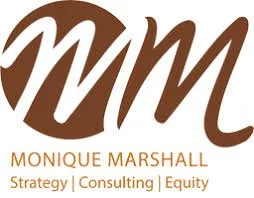FACILITATION PARTNERS:
WORKSHOP DESCRIPTIONS + TESTIMONIALS:
Inevitable Harm: How White People Can Persevere Through Their "Mistakes" and Keep Their Skin in the Game
Participants will be guided through a process of reflecting on what they learned in childhood about making mistakes and how those lessons impact their behavior patterns today. The workshop includes a review of trauma-related survival strategies and how they get in our way when we act out the racism we learned unwillingly. Participants will leave with tangible strategies they can implement immediately for resilience, humble learning, and conscious action.
What participants have to say:
"Powerful! Making the connection between how I learned to handle mistakes as a child and how I deal with mistakes now was eye-opening."
"I plan to more actively teach my students about how mistakes are opportunities."
"This moved us closer to being able to communicate with one another and with ourselves with greater levels of confidence and understanding."
We're All in This Together! Strategies for Raising Antiracist White Youth Starting in Early Childhood
Parenting adults, educators, and others with young people in their lives will leave this workshop with: 1) an understanding of what current research says about when and how children learn racism; 2) more insight into their own childhood racial socialization; 3) an analysis of common pitfalls; and 4) tangible strategies they can implement immediately for responding to challenging situations and for being proactive in raising antiracist white youth.
What participants have to say:
“My toolbox is full of so many new, practical ideas I can start using tomorrow!”
“I came in feeling completely lost about how to talk with my son about all this stuff. But I have so much more clarity now and I don’t feel as isolated as I did before.”
Dismantling White Supremacy by Healing White Jewish Bodies
In recent years, we have learned that trauma is not just inherited culturally (through adaptive survival behaviors), but also biologically (through epigenetics). This transmission from one generation to the next is called intergenerational or transgenerational trauma.
Although Ashkenazi Jewish communities living in Christian Europe survived countless periods of violent persecution, the Nazi Holocaust and its resulting transgenerational trauma has been studied the most. In fact, the United States’ particular brand of whiteness/white supremacy is complicit in that trauma. Hitler’s conceptualization of a “master race” was born out of American white supremacy, the Nuremberg Laws mimicked Jim Crow, and Nazi eugenics were an extension of American eugenics. Yet like other European immigrant groups, Ashkenazi Jewish Americans eventually became white and internalized white supremacy.
For White Jews in the U.S., the intersection of Jewishness and whiteness is incredibly complicated. How can white Jews heal along this intersection? What does it mean to have coursing through our veins the same whiteness/white supremacy that is complicit in our ancestors’ genocide? What survival behaviors — born out of generations of trauma — do we enact unconsciously that reinforce both our internalized antisemitism and white dominance? How can we access the resilience we inherited alongside the trauma?
This workshop will provide a space for White Jews to practice feeling this complexity in their bodies in order to ultimately heal from it. Without such somatic healing, we cannot fully challenge white supremacy.
What participants have to say:
“I have participated in White anti-racist spaces for many years, but I’ve always craved a space like this. Thank you, thank you, thank you!”
“This was the first time I ever felt fully seen in an antiracism workshop.”
Cycle of Oppression 101
Youth and/or adult participants will receive an overview of basic terminology, including stereotype, prejudice, discrimination, oppression, and internalized oppression. Adultism — the oppression of young people — is frequently used in this workshop as an entry point to understanding the dynamics of power and privilege.
What participants have to say:
"Clear explanations and easily digestable content."
"I used to think about racism mostly in terms of individual acts, but now I see that it's so much more."
"I was expecting this to be a 'let's beat up on White people' experience, but it was the total opposite. It was the first time someone explained racism without trying to make or making me feel guilty."





